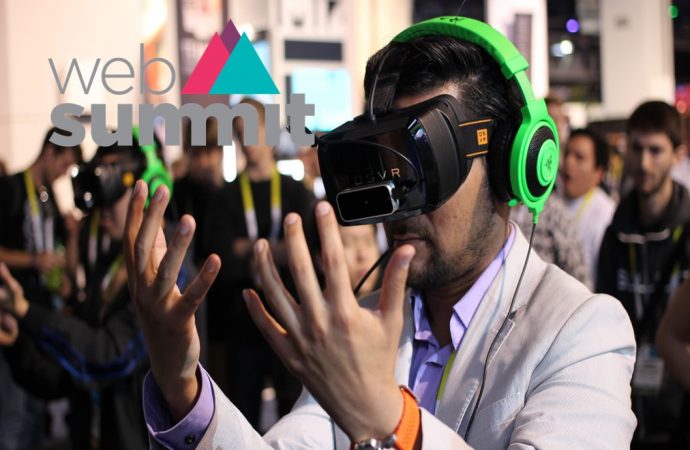Last week, the Web Summit, the world’s largest technology event, took place in Lisbon. More than 50,000 participants gathered to hear what the future holds. Here, we analyze the latest trends for the entertainment market.
Gaming
Virtual Reality (VR) was widely debated at this year’s edition of the Web Summit Lisbon. The videogames industry is already adapting to VR and offering new gaming experiences to its users. However, the optimal VR games are still two years far away, in the words of Shawn Layden, president of Sony Entertainment.
Moreover, Layden added that VR will probably be used for intense gaming experiences, of 25 to 30 minutes, rather than for hours of gaming.
Live streaming of games is expected to dramatically increase in the next years. For now, millions of gamers and non-gamers are using online platforms to watch and learn with the best players. Jonathan Simpson-Bint, CRO of Twitch, one of the largest platforms for online gaming transmission, estimates that every user spends around 2 hours watching others play online games.
Thus, it comes as no surprise that companies are turning to live streaming platforms as an alternative to TV advertisement. While Twitch is the current leader in live streaming, other brands are investing millions of dollars to have a piece of the market share as well. Facebook, Twitter and Youtube are just a few corporations that will soon enable users to live stream their content.
Movies
It is now easier than ever to produce and share digital content in platforms like BuzzFeed. For Michael Shamberg, who worked in productions like Pulp Fiction, movie studios have to look at these new platforms as a showcase of what people want to see. For Shamberg, Amazon and Netflix are leading the way in what he calls a revolution in creative content. On the contrary, the fact that the Hollywood industry still relies on blockbusters and the acquisition of movie rights reveals a lack of creativity and innovation.
For many movie producers, there is little doubt that Virtual Reality will shape the future of the movie industry. It allows the viewer not only to relate with the characters, but also to be a character and part of the movie itself, as Dave Ranyard, CEO of Dream Reality Interactive, put it. Ranyard admits, however, that VR is closer to the gaming industry than to the movie industry. Derek Koening, head of Creative from Discovery Communications, was slightly more careful in envisioning the future of VR in movies. He defended a gradual shift towards VR, recalling the failure of the transition from HD to 3D. Koening also pointed out that not every story is made to be told in VR cinema.
For William Sargent, the story will always be the most crucial aspect of a movie; the technology should follow it, not the other way around. The executive director of Framestore, a company that created the visual effects for movies like ‘The Dark Knight’ or ‘Harry Potter and the Deathly Hallows’, talked about one of most innovative VR projects being made: the ‘Field Trip to Mars‘. Using LCD panels and Washington DC maps, Framestore designed a school bus that mimicked the surface of Mars. As soon as students entered the bus, they were virtually taken to the Red Planet, in the first group Virtual Reality experience ever made.
Music
Artists Ne-Yo and Tinieh Tempah and the founders of SoundCloud and Deezer were at the Web Summit to discuss the new challenges for the music industry. For Ne-Yo, the legislation has a long way to go in order to accompany the ever-changing pace of how people listen to music nowadays, referring to the infinitesimal percentages that musicians receive for the streams of their songs.
“The crazy thing is there is more music being consumed now than ever – which is really cool. But it is not financially stable anymore. Songwriters are barely getting by now because of the fact there are no laws in regard to streaming. It sucks.”
Ne-Yo
The prevailing feeling, however, is that the music industry is living exciting times. Streaming platforms offer better ways for artists to understand their audiences and for listeners to understand what they really like and what exactly they want to buy.
On the last day of the event, Bruce Pavitt discussed the future of music labels. The founder of Sub Pop, which launched Nirvana in the 90s, believes that labels still play a great role in finding and launching new artists. Nonetheless, musicians have now much more opportunities to build their careers without the support of big music labels, giving the example of musicians Frank Ocean or Chance the Rapper.
Sources:
Web Summit | Lisbon 2016
TubeFilter
Rádio Renascença
Espalha Factos
Image Credit: Maurizio Pesce / Flickr



